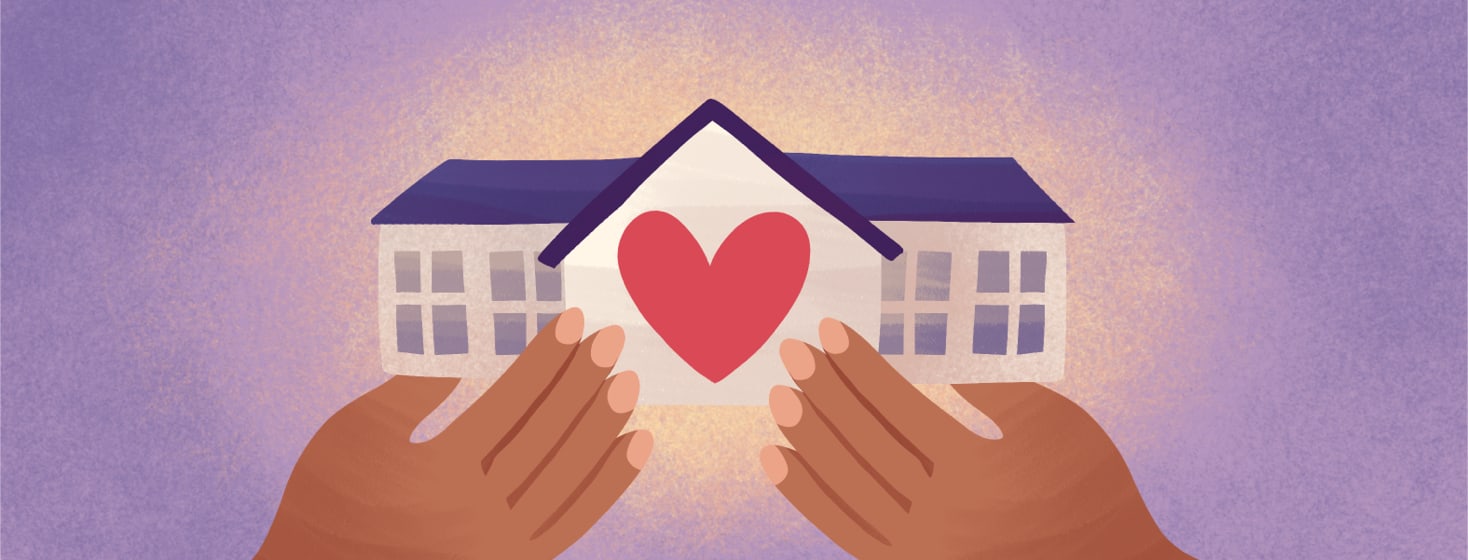What to Look For In A Dementia-Friendly Senior Home
When looking for a senior home for your loved one, especially one who lives with dementia, it can be tempting to judge the book by its cover. Some senior homes now boast airy and bright common areas, perfect landscaping, and luxurious restaurants.
Now that my mom has lived in her senior home for almost 2 years, we've learned a lot about what really matters. I know now not to be distracted by the most beautiful senior homes, especially if you are forced to make a quick decision for a loved one.
Instead, here are some things you might want to pay attention to: How residents feel about living there, how often the staff turns over, and what specific accommodations they have for those living with dementia.
Adjusting your view of senior homes
When I started touring senior homes for my mom who lives with Alzheimer’s dementia, I was impressed by the offerings. Gone were the days of dark buildings with strange smells. At least in my area, senior homes are starting to look more like modern hotels, sparkly clean with high ceilings and attractive furnishings.
I was blown away by the amenities offered to seniors in these homes. One had multiple restaurants with white tablecloths and actual menus, another had a swimming pool and theater room, and many had on-site beauty salons, computer labs, and green spaces for residents to garden. I found myself wanting to move in too!
Do residents like living there?
As caregivers know, there are more important things to consider than the color of the paint. The Alzheimer’s Association has a helpful long-term care guide that includes questions to ask and important considerations.
They suggest visiting the facility multiple times, scheduled and unscheduled, at different times of the day. Visiting the building multiple times can help you see if residents seem to like (or not like) living there.
I toured different homes at mealtimes and during activities and specifically looked to see if residents seemed happy, comfortable, and involved. I paid attention to the feel of the dining room when everyone was eating. Did the residents seem to like being there or did they complain a lot?
I even politely stopped family members or visiting care providers in the parking lot and asked them about their experience. The home we finally settled on was commended by family members, residents, and therapists who routinely visited facilities in the area, which gave me a lot of reassurance because they had no incentive to "sell" it to me.
Does the staff like working there?
While I was touring, I also paid attention to how frequently the staff changed. I wanted my mom to live in a place where the staff were treated well because if the staff were happy, I knew her care would be better too.
Maybe this doesn’t seem like a big deal, but according to a report by The Consumer Voice, having high turnover in the staff is connected with higher instances of resident abuse, and greater numbers of substantiated resident complaints.1
Don’t be afraid to ask about staff turnover statistics. If families have a choice, choosing a senior home with consistent, well-treated staff can actually lead to better care for our loved ones.
Is it suited for someone with dementia?
When I was looking at a senior home for my mom, she was in the early stages of Alzheimer’s. She didn’t yet need the advanced care offered at assisted living or memory care. She did need help with meals (she no longer cooked) and driving (she no longer drove). So I looked for an independent living home with appealing dining options and convenient transportation to appointments and shopping.
I knew eventually she might need more help so I also looked for a home that offered multi-level care, or "aging in place." This allows residents to remain in the community, or sometimes even the same room, and receive more services as the disease progresses.
Independent living is not specifically designed for those living with Alzheimer’s, so I also looked for certain features to help my mom. For example, contrasting colors on doors and walls and carpet can be less confusing for people with dementia, who might be disoriented by monotone shades. Even though she didn’t need a locked facility, I looked for safe indoor and outdoor areas (her current home has only one entrance in and out and they are monitored in case wandering becomes a concern).
Prioritize safety and good care
The most important part of a senior home for a loved one with dementia is that they are safe and taken care of. It doesn’t have to be the fanciest building or the biggest room. In fact, those living with dementia might prefer different things than they did before they had the disease.
The good thing about most senior homes is that you can always change your mind. Many do not ask you to sign a contract but charge month-to-month rent. So if the fit isn’t right, you can always try something else.

Join the conversation